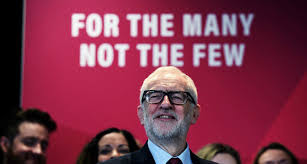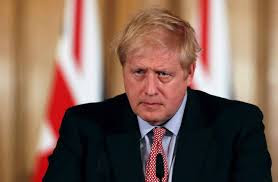Projecting, that was what we were talking about when I last posted about Donald Trump. The process by which a weak and vindictive person accuses others of having the very faults they constantly display themselves. In Trump’s case, it’s particularly fun, because what he’s most inclined to attack others for is lying and being abusive, and he does it by throwing untrue insults at them.
What we also found, though, is that the tactic doesn’t particularly work. A lot of people are simply turned off by it. Those who aren’t are his core supporters, and there weren’t enough of them to win the election for him – too many for my liking, but too few to stop him becoming that thing that he hates most, a Loser.
 |
| Trump the loser |
It’s that failure to win backing from anyone but a core that I want to talk about now. It’s the phenomenon of preaching to the choir. Trump is one of its major exponents, and has the self-inflicted wounds to show for it, but he’s by no means alone in behaving this way. Why, it isn’t even the exclusive preserve of the right.
Trump loves his rallies. Indeed, he loves any gathering of his faithful. You may remember his motorcade making a point of driving past cheering supporters outside the White House, campaigning to reverse the results of the presidential election.
That’s the thing about preaching to the choir. It makes you feel good, all that adulation. But it doesn’t get you far. It gives you a false notion of your real standing. Trump can emerge from a rally with the applause still ringing in his ears and deluded that he has such backing that, if he lost the election, it can only have been because it was rigged against him.
I believe he really has that delusion, that he isn’t lying when he says he won the election, but genuinely believes it, because the notion that he might have lost strikes him as genuinely unthinkable.
That comes of having failed to listen to anyone but his core supporters. He makes sure he never hears a contradictory voice by simply firing anyone who offers him a word of caution, by never listening to anyone who opposes him, and by writing off as fake any report that he dislikes in the media.
The result is that he loses an election by 7 million votes, thinks he can overturn it by appealing to judges only to discover that even the ones he appointed won’t help, and finally toys with turning to a military who won’t back him either: some of his advisers have been talking about proclaiming martial law as a way of hanging on to power. They feel he can ignore the fact that many elements from the military are committed to upholding the Constitution (which Trump, despite his oath of office, clearly isn’t) and have little time, in any case, for a draft dodger who never misses an opportunity to abuse them.
Preaching to the choir and ignoring everyone else. It gets you nowhere. In Britain, we had the same experience with Jeremy Corbyn, from the far left of the Labour Party and its previous leader. Many of us felt that he was so poor a leader, he would inevitably lead the Party to crushing defeat. But anyone who said anything along those lines was viewed as a traitor, the same charge Trump brings against any of his fired staff who speak out against him.
Corbyn and his supporters listened only to themselves, consulted only their own wishes. When told he was unelectable, they would point to the over 300,000 Labour members who’d elected him leader and the adulation offered him, as to Trump, at his rallies. They couldn’t bring themselves to understand that a majority of the Labour Party was never more than a nice-to-have, when power requires ten or eleven million votes from the national electorate.
 |
| Jeremy Corbyn loved by the few, defeated by the many |
Try to listen to no bad news, and learn nothing from it when you can’t avoid it. That’s the way of the deluded who can’t see beyond the cheering of core supporters.
The present British Prime Minister, Boris Johnson, is in much the same boat, with a subtle difference. Trump and Corbyn believe that everyone shares their high opinion of themselves, and endorses their particular views. Johnson is just as convinced a narcissist, but he has no views. He just wants to be loved. He’ll choose any position that he thinks will win him that love.
On Brexit, the great question of recent times in Britain, he drafted articles for his then employer, the Spectator magazine, both for and against leaving the EU. He plumped for the leave position because he felt it would gain more traction.
Now, however, after four years of constantly playing to that particular sector of opinion within his Conservative Party, he has painted himself into a corner where he looks set to emerge with no deal to ease Britain out of the EU. That position is supported by under 20% of the British population.
So intent has he been to preach to the hardest of Brexiters, that he’s got into a position where he’s loved by far too few people, and despised by a great many more. His days as leader of the Conservative Party and Prime Minister are probably numbered, as Conservatives don’t like being saddled with vote-losing positions.
The irony is that he may not even really believe in the position he’s forced himself into, and only chose it because he mistakenly convinced himself that it would win him affection.
 |
| Boris Johnson: losing control? |
No comments:
Post a Comment